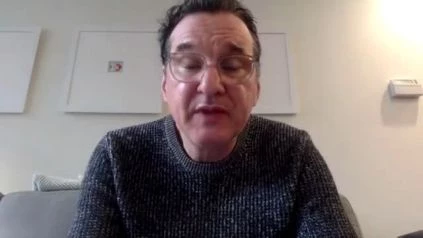Charles L. Shapiro MD, FASCO, Professor of Medicine, Hematology, Medical Oncology and Director of Translational Breast Cancer Research Icahn School of Medicine at Mount Sinai speaks about the SABCS 2020 abstract – Postmenopausal Women With Early-stage Breast Cancer and Low Recurrence Score Could Skip Adjuvant Chemotherapy.
SAN ANTONIO-After a median follow-up of 5.1 years, postmenopausal patients had no additional gain from chemotherapy among women with lymph node-positive early-stage breast cancer and a recurrence score of 25 or lower who received adjuvant endocrine therapy with or without chemotherapy, while premenopausal patients who received chemotherapy had increased invasive disease-free survival (IDFS) and chemotherapy
With the funding of the National Cancer Institute, RxPONDER was developed and managed by SWOG Cancer Research Network. It was intended to decide which patients with HR-positive, HER2-negative breast cancer, and one to three positive axillary lymph nodes benefit from chemotherapy and which patients with endocrine therapy alone could escape chemotherapy safely and yet achieve similar outcomes.
In this clinical trial, 5,083 patients were randomly allocated (1:1) to endocrine therapy alone or endocrine therapy plus chemotherapy for stage 2-3 breast cancer affecting one to three axillary lymph nodes and whose tissue had a recurrence score of 25 or lower. Of the patients, nearly two-thirds were postmenopausal. Recurrence score (0-13 versus 14-25), menopausal status, and axillary nodal dissection versus sentinel node biopsy were stratified in the results.
Using the Oncotype Dx test, the recurrence value, which can range from zero to 100, was calculated. For early-stage invasive breast cancer, the test offers a genome-based individualized risk assessment (by testing 16 cancer-related genes).
The study was designed to determine whether the difference in IDFS was related to the recurrence score for patients treated with chemotherapy compared with those without chemotherapy. In assessing the entire sample population, including both premenopausal and postmenopausal participants, the investigators found no correlation between the benefit of chemotherapy and recurrence score values between 0-25.
There was, however, a substantial correlation between the value of chemotherapy and menopausal status, prompting a further review of the menopausal status results.
There was no gap in the five-year IDFS between those undergoing chemotherapy and those not receiving chemotherapy in postmenopausal patients with recurrence scores of 25 or lower (91.6 percent vs. 91.9 percent, respectively).
In premenopausal patients with 25 or lower recurrence ratings, IDFS for five years was 94.2% for those receiving chemotherapy and 89% for those not receiving chemotherapy. In premenopausal patients, data also showed a 53 percent OS benefit, but this result is considered early due to the small number of events at the time of evaluation. For premenopausal women with recurrence scores of 0-13 and those with recurrence scores of 14-25, the findings were identical.

